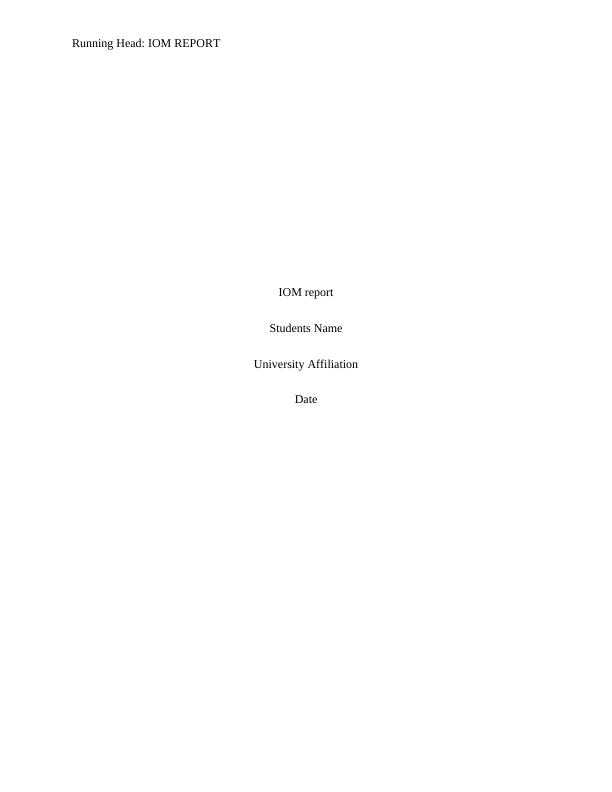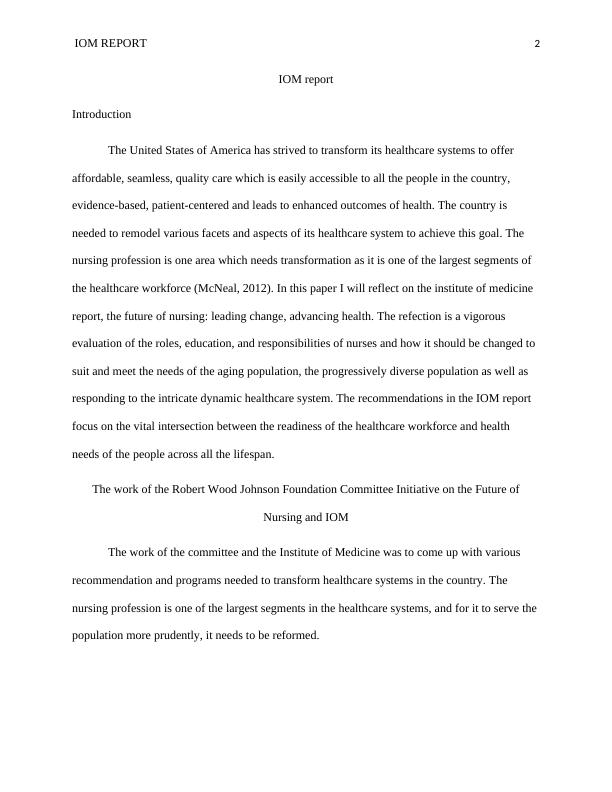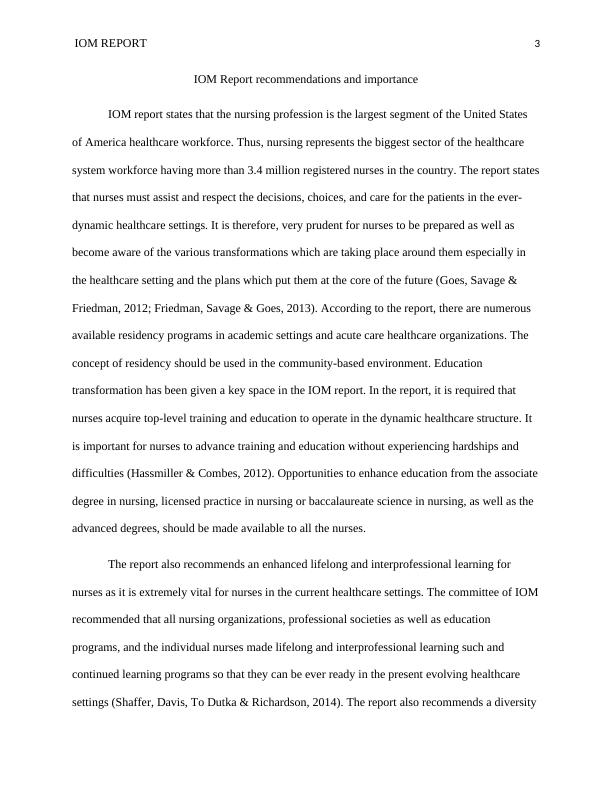IOM Report on the Future of Nursing: Recommendations and Implementation
Discuss the work of the Robert Wood Johnson Foundation Committee Initiative on the Future of Nursing and the Institute of Medicine research that led to the IOM report, 'Future of Nursing: Leading Change, Advancing Health.' Identify the importance of the IOM 'Future of Nursing' report related to nursing practice, nursing education and nursing workforce development. Explore the role of state-based action coalitions and how they advance goals of the Future of Nursing: Campaign for Action.
Added on 2023-05-27
About This Document
This paper reflects on the Institute of Medicine (IOM) report, the future of nursing: leading change, advancing health. It evaluates the roles, education, and responsibilities of nurses and how they should be changed to meet the needs of the aging and diverse population and respond to the dynamic healthcare system. The recommendations focus on education, diversity in the healthcare workforce, and interprofessional collaboration. The paper also discusses the Florida Action Coalition and its efforts to promote nursing education and leadership.
IOM Report on the Future of Nursing: Recommendations and Implementation
Discuss the work of the Robert Wood Johnson Foundation Committee Initiative on the Future of Nursing and the Institute of Medicine research that led to the IOM report, 'Future of Nursing: Leading Change, Advancing Health.' Identify the importance of the IOM 'Future of Nursing' report related to nursing practice, nursing education and nursing workforce development. Explore the role of state-based action coalitions and how they advance goals of the Future of Nursing: Campaign for Action.
Added on 2023-05-27
End of preview
Want to access all the pages? Upload your documents or become a member.



